今朝は更にもう一つ。英語のお勉強を(^^)/ 原田武夫です。
なんで・・・
日本は排除されるんでしょうね~ このイラン核問題協議から。。。
不思議ですよねぇ。。
ドイツは入ってるのに。。。(笑)
・・・
Press Availability
John Kerry
Secretary of State
Vienna, Austria
November 24, 2014
SECRETARY KERRY: Good afternoon, everybody, and thank you so much for your patience. We appreciate it very much. We know that this is a long process and there's a great deal of waiting, and you have waited with great patience.
I want to begin by thanking the Austrian Government, particularly, who have hosted us here in Vienna for these negotiations. We've had many visits now and they have been equally gracious in every single one of them and enormously helpful. And we thank all the people of Austria for their very generous embrace and welcome.
I want to thank the United Nations and my colleagues from the United Kingdom, Germany, France, Russia, China, and the EU, and especially my good friend Baroness Cathy Ashton, whose partnership has been absolutely invaluable throughout this process and who has done a terrific job of helping to bring people together and define the process.
Let me also take a moment to thank the team of people that you don't see right now, but they're closeted up in a suite in the hotel - a strong, large group of people who spend unbelievable amounts of hours working hard. And if Foreign Minister Zarif and I and Baroness Ashton or some combination of foreign ministers come up with an idea, we take the idea to them and then they work literally through the night into the morning to put it to the test and see if it can be viable. And I want to thank them for their incredible amount of hard work and their commitment; the expertise, the diligence, the hard work they've put in to try to make sure we get this right.
I also want to take this opportunity to thank Foreign Minister Javad Zarif. The Iranian foreign minister has worked hard and he has worked diligently. He has approached to these negotiations in good faith and with seriousness of purpose, and that's what it takes to try to resolve the kind of difficult issues here.
And finally, I want to thank all of you for being patient throughout the process and bearing with our need, the imperative, to keep what is discussed in these negotiations exclusively among the negotiators to the greatest degree that we can. I know you understand and I can tell you through my years in public life of negotiating, that if facts are out there being bandied back and forth in the public domain with specificity, they often can wind up defeating good ideas before they get off the ground. So we need to continue to work the way we have been exclusively among the negotiators with respect to the details.
Now we have worked long and hard not just over these past days but for months in order to achieve a comprehensive agreement that addresses international concerns about Iran's nuclear program. This takes time. The stakes are high and the issues are complicated and technical, and each decision affects other decisions. There's always an interrelationship, and each decision also deeply affects international security and national interests.
It also takes time to do this because we don't want just any agreement. We want the right agreement. Time and again, from the day that he took office, President Obama has been crystal clear that we must ensure that Iran does not acquire a nuclear weapon, period. And this is not specific to one country; it's the policy of many countries in the world to reduce the numbers of nuclear weapons that exist today and not to allow new ones. And we are engaged in that struggle in many places. And the fact is that even Russia and the United States, who have the largest number, are working hard to reduce that number and to reduce the potential of fissionable nuclear material being available to any additional entity in the world.
President Obama has been just as clear that the best way to do this is through diplomacy, through a comprehensive and durable agreement that all parties can agree to, that all parties are committed to upholding, and whose implementation is not based on trust but on intensive verification. And that is not just because diplomacy is the preferred course; it is also the most effective course.
Diplomacy is also difficult. These talks are going to suddenly get easier just because we extend them. They're tough and they've been tough and they're going to stay tough. If it were easier, if views on both sides weren't as deeply held as they are, then we'd have reached a final agreement months or even years ago. But in these last days in Vienna, we have made real and substantial progress, and we have seen new ideas surface. And that is why we are jointly - the P5+1, six nations and Iran - extending these talks for seven months with the very specific goal of finishing the political agreement within four months and with the understanding that we will go to work immediately, meet again very shortly. And if we can do it sooner, we want to do it sooner.
At the end of four months, we have not agreed on the major - if we have not agreed on the major elements by that point in time and there is no clear path, we can revisit how we then want to choose to proceed.
Now we believe a comprehensive deal that addresses the world's concerns is possible. It is desirable. And at this point, we have developed a clearer understanding of what that kind of deal could look like, but there are still some significant points of disagreement, and they have to be worked through.
Now I want to underscore that even as the negotiations continue towards a comprehensive deal, the world is safer than it was just one year ago. It is safer than we were before we agreed on the Joint Plan of Action, which was the interim agreement.
One year ago, Iran's nuclear program was rushing full speed toward larger stockpiles, greater uranium enrichment capacity, the production of weapons-grade plutonium, and ever shorter breakout time. Today, Iran has halted progress on its nuclear program and it has rolled it back for the first time in a decade.
A year ago, Iran had about 200 kilograms of 20 percent enriched uranium in a form that could be quickly enriched into a weapons-grade level. Today, Iran has no such 20 percent enriched uranium - zero, none - and they have diluted or converted every ounce that they had and suspended all uranium enrichment above 5 percent.
A year ago, Iran was making steady progress on the Arak reactor, which, if it had become operational, would have provided Iran with a plutonium path to a nuclear weapon. Today, progress on Arak, as it is known, is frozen in place.
A year ago, inspectors had limited access to Iran's nuclear program. Today, IAEA inspectors have daily access to Iran's enrichment facilities and a far deeper understanding of Iran's program. They have been able to learn things about Iran's centrifuge production, uranium mines, and other facilities that are important to building trust. That's how you build trust, and that's why Iran made the decision to do it. And they've been able to verify that Iran is indeed living up to its JPOA commitments.
All of these steps by Iran and the limited sanctions relief that the international community provided in return are important building blocks to lay the foundation for a comprehensive agreement and they begin to build confidence among nations.
A year ago, we had no idea whether or not real progress could be made through these talks. We only knew that we had a responsibility to try. Today, we are closer to a deal that would make the entire world, especially our allies and partners in Israel and in the Gulf, safer and more secure.
Is it possible that in the end we just won't arrive at a workable agreement? Absolutely. We are certainly not going to sit at the negotiating table forever, absent measurable progress. But given how far we have come over the past year and particularly in the last few days, this is not certainly the time to get up and walk away. These issues are enormously complex. They require a lot of tough political decisions and they require very rigorous technical analysis of concepts. It takes time to work through the possible solutions that can effectively accomplish our goals and that give the leaders of all countries confidence in the decisions that they are being asked to make.
So our experts will meet again very soon. In fact, we will have a meeting in December as soon as possible in order to continue this work and to drive this process as hard as we can. And as the parties continue to negotiate, all of the current restraints on the nuclear program in Iran will remain in place.
Now, let me make it clear: Our goal in these negotiations is not a mystery. It is not a political goal. It is not an ideological goal. It is a practical goal, a goal of common sense, and it is achievable. The United States and our EU and P5+1 partners - the UK, France, Germany, Russia, and China, a group of nations that doesn't always see eye to eye - agree unanimously about what a viable agreement would need to look like.
First and foremost, the viable agreement would have to close off all of the pathways for Iran to get fissile material for a nuclear weapon. A viable agreement would have to include a new level of transparency and verification beyond the expanded access that we've had under the JPOA. And as these conditions are met, a viable agreement would also include for Iran relief from the international nuclear-related sanctions that help to bring them to the table to negotiate in the first place.
And because of the nature of these talks, we should not - and I emphasize we will not - in the days ahead discuss the details of the negotiations. And we're doing that simply to preserve the space to be able to make the choices that lie ahead. But I can tell you that progress was indeed made on some of the most vexing challenges that we face, and we now see the path toward potentially resolving some issues that have been intractable.
I want to also emphasize: This agreement, like any agreement, regarding security particularly, cannot be based on trust because trust can't be built overnight. Instead, the agreement has to be based on verification, on measures that serve to build confidence over time. And I want to make it even further clear to everybody here we really want this to work - but not at the cost of just anything. We want to reach a comprehensive deal and we want it to work for everybody. And we want the people of Iran to get the economic relief that they seek and to be able to rejoin the international community.
We want to terminate the sanctions. Yes, we want to terminate the sanctions which were put in place to get us to these negotiations and ultimately to be able to bring about a deal. But the world - and I underscore this - not just the United States, not just the P5+1 - the world still has serious questions about Iran's nuclear program. And for the sanctions to be terminated, we need Iran to take concrete, verifiable steps to answer those questions. That's the bottom line.
And for my friends in the United States Congress, with whom I spent almost 30 years in the United States Senate, I would say that together, we have been through some tough policy deliberations. I had the responsibility of chairing the Foreign Relations Committee when we put the sanctions regime in place that has helped us get this far. I believe in the institution and the critical role that the Senate has to play, and the House. We have stayed in close consultation throughout this process, and we will continue to do so. And we look for your support for this extension and for continued talks.
And I would say to those who are skeptical, those who wonder whether we should rush ahead down a different course, I believe the United States and our partners have earned the benefit of the doubt at this point. Many were quick to say that the Joint Plan of Action would be violated; it wouldn't hold up, it would be shredded. Many said that Iran would not hold up its end of the bargain. Many said that the sanctions regime would collapse. But guess what? The interim agreement wasn't violated. Iran has held up its end of the bargain, and the sanctions regime has remained intact.
My friends, we have the time in the next weeks and months to try and get this right. And because of that, we should continue to exercise the judgment and the patience to defend our interests, uphold our core principles, maintain our sense of urgency that this issue deserves, and keep open the road to a peaceful resolution. That's what we decided to do here today. I am convinced it is the right decision, made on the basis of what we have done over the course of these last days, and on the prospects of what we could achieve if we can reach a comprehensive agreement.
I'd be happy to take a few questions.
https://www.facebook.com/iisia.jp/posts/773731316031425
ただし要注意なのはこれでPLAN Bに移った可能性大ということ
http://blog.goo.ne.jp/nobody-loves-you/e/805daf89a426798db17329a51e160cf6










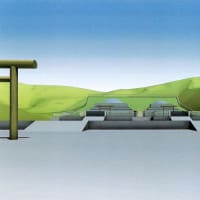
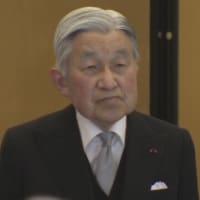
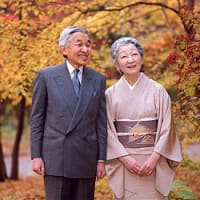
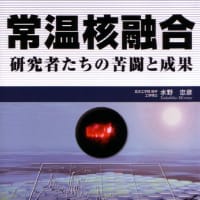
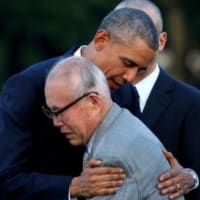
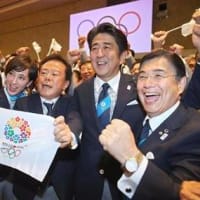
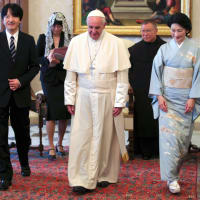
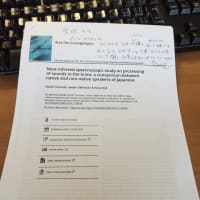
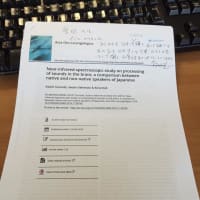

※コメント投稿者のブログIDはブログ作成者のみに通知されます